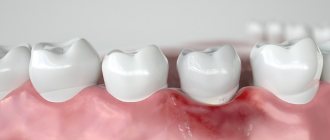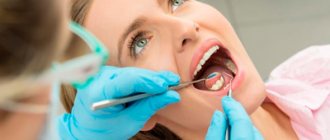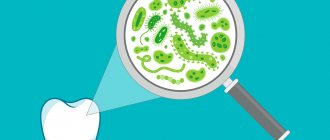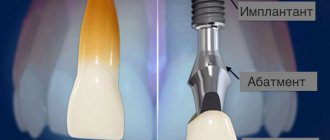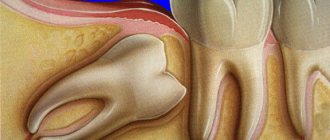What does pain depend on?
How long does the pain last? Localization of pain Pain during implantation Pain during prosthetics How to reduce pain? When to urgently consult a doctor? What to do if your jaw and gums hurt after dental implantation? Is this considered normal and how long can it last? Do I have to endure it? Let's look at it in more detail in our article.
During the implantation of a titanium rod into the bone, a puncture is made in the gums, and tissues and blood vessels are consequently injured, so pain, swelling or slight bleeding is a normal response of the body.
The implantation itself takes place without pain, since the procedure for installing an artificial tooth root is carried out under anesthesia. After its effect ends, sensitivity returns, an aching, throbbing pain syndrome appears, it should go away on the 10th day or earlier.
How to avoid complications after implantation
- How to behave after surgery
- Postoperative nutrition
- How long does it take to heal?
- How are sutures removed?
- Postoperative complications
- Swelling after dental implantation
- Inflammation and temperature
- Numbness
- Antibiotics after implantation
- Simultaneous (immediate) implantation
During implantation, the dentist places an artificial tooth root into the gum, which then becomes the basis for a removable or fixed denture. The operation is always complex and multi-stage, and to achieve success it requires the joint work of the doctor and the patient. Even at the current level of development of medicine, it is impossible to completely guarantee the absence of complications: aching pain, hematomas, swelling, bleeding, infection, fever. It is also possible for the implant to fail.
But if you follow the recommendations, it will be easier to avoid complications, and the implant will take root faster.
So, what to do after dental implantation to quickly relieve the consequences of surgery and the best healing of the gums?
How to behave after surgery
Doctors give the following recommendations after dental implantation:
- Do not use irrigators. Any treatment of the oral cavity should be as soft and gentle as possible. Oral baths are indicated. Active rinsing with antiseptic solutions is prohibited before the sutures are removed.
- Brush your teeth with gentle movements using a soft brush (your doctor will recommend a brush). You can use dental floss and superfloss. But it is better to clean your teeth directly at the operation site only with a cotton swab dipped in a 3% hydrogen peroxide solution.
- Avoid involuntary sneezing, coughing and blowing your nose, especially if the implantation is associated with sinus lift surgery. A sharp increase in pressure in the maxillary sinus can lead to mechanical damage to the bone tissue and displacement of the implant.
- Avoid extreme temperature changes. For this reason, it is better not to visit baths and saunas.
- Air travel can also be harmful because rapid changes in altitude make it difficult to avoid a surge in pressure in the ear-nose-throat system.
Postoperative nutrition
Avoid hot foods until the anesthesia wears off. If you eat or drink something too hot, you can accidentally burn your gums because they won't feel the temperature.
In the first two days, do not drink coffee: it increases blood pressure and this can lead to bleeding. This also explains the requirement to exclude alcohol and smoking.
Within 10 days after surgery, to strengthen injured bone tissue, include calcium-containing foods in your diet: cottage cheese, kefir, yogurt.
Do not eat salty, spicy, very hot or frozen foods, as well as rough foods - crackers, nuts. The load on the teeth should be reduced as much as possible, so you should avoid foods that require careful active chewing - for example, tough meat.
The best option for a postoperative diet is pureed, semi-liquid, moderately warm food (soups, cereals, smoothies), or finely chopped.
How long does it take to heal?
Bone tissue and gums heal after dental implantation on average from three to six months, and the period is different for the upper and lower jaws. The lower jaw will heal in three to four months, but the upper jaw will take longer: four to six months. This is due to the greater bone density of the lower jaw.
Sometimes the healing rate deviates from the average time frame, because it depends on the individual characteristics of the patient’s body: the speed of regeneration, the strength of the immune system, the pain threshold. Even such factors as gender, age, lifestyle, diet and daily routine of the patient are important.
In any case, recovery after surgery takes some time. Following medical recommendations will help protect yourself from complications during healing.
How are sutures removed?
Sutures after dental implantation are usually removed 10-14 days after surgery, unless otherwise indicated. Throughout this period, surgical sutures need careful, delicate handling. After suturing, there may be some discharge or slight pain. It is permissible to use painkillers (Nise, Ketanov or another remedy recommended by a doctor).
Modern dentistry uses strong synthetic threads that do not break even with active chewing of food, so dental sutures now rarely come apart. But suture dehiscence is still possible - however, it is most often associated with violations of medical recommendations, most often with mechanical damage to the operation area.
Removal of sutures does not require anesthesia and is completely painless.
Postoperative complications
The most common complications after dental implantation are:
- Pain syndrome. The norm is mild soreness of the gums in the area of implantation for 1-2 days. In cases where severe pain does not go away even after taking the generally recommended painkiller, you should consult a doctor, because this is most often a symptom of a complication.
- Inflammation.
- Seams coming apart.
- Hemorrhages. After surgery, ichor often separates from the gums, the amount of which quickly decreases and disappears. It is enough to remove it with cotton swabs. But if the bleeding becomes more intense, you should consult a doctor immediately.
There are also complications such as inflammation of the sinuses, peri-implantitis (inflammation of the tissue around the implant, leading to destruction of the supporting bone tissue), mucosal hyperplasia (pathological growth of the mucous membrane in the area of the implant), damage to the implant and prosthesis.
Therapeutic effect
Ketonal has a complex effect on the human body: antipyretic, anti-inflammatory, anesthetic. This property allows them to be used for pain of moderate to severe severity. The drug relieves discomfort in 10-15 minutes (depending on the form of release), and the effect of its consumption is observed for 6-8 hours.
Useful information: Ketonal Duo capsules have a prolonged action. The effect of their use is observed up to 11-12 hours.
The effect of introducing suppositories will be noticeable after 20-30 minutes. They act more slowly than Ketonal in tablets or injections, but the results from their use last as long as from the consumption of capsules
Ketonal belongs to the group of potent NSAIDs, so it can only be used if absolutely necessary. With minor discomfort, it is better to resort to drugs with a smaller list of side effects: Analgin, Paracetamol.
Swelling after dental implantation
In the first three days after implantation, swelling may occur in the gum tissue. This is the body's natural reaction to surgery. Most often, a tumor is an indicator that blood is actively flowing to the operation site.
But if you want to avoid the discomfort caused by swelling, you can reduce the risk of its occurrence. To do this, in the first two days, apply cold to the operation site: for 5-10 minutes with breaks of 20 minutes. Do not apply ice directly to the skin; it is best to wrap it in a towel. In rare cases, the tumor will require the use of antihistamines, antibiotics (to prevent infection) or treatment with antiseptic solutions.
It will also help to avoid swelling by eliminating sudden stress loads on the body: physical overload, hypothermia, overheating.
Ketonal®
According to the World Health Organization (WHO), adverse effects are classified according to their frequency as follows: very common (≥1/10), common (≥1/100, <1/10), uncommon (≥1/1000, < 1/100), rare (≥1/10000, <1/1000) and very rare (<1/10000); frequency unknown (the frequency of events cannot be determined from the available data).
Hematopoietic and lymphatic system disorders
rarely: hemorrhagic anemia; frequency unknown: agranulocytosis, thrombocytopenia, bone marrow dysfunction.
Immune system disorders
frequency unknown: anaphylactic reactions (including anaphylactic shock).
Nervous system disorders
uncommon: headache, dizziness, drowsiness; rarely: paresthesia; frequency unknown: convulsions, disturbance of taste.
Mental disorders
frequency unknown: emotional lability.
Sensory disorders
rarely: blurred vision, tinnitus.
Cardiovascular disorders
frequency unknown: heart failure, increased blood pressure, vasodilation.
Respiratory system disorders
rarely: exacerbation of bronchial asthma; frequency unknown: bronchospasm (especially in patients with hypersensitivity to NSAIDs), rhinitis.
Gastrointestinal disorders
often: nausea, vomiting, dyspepsia, abdominal pain; uncommon: constipation, diarrhea, bloating, gastritis; rarely: peptic ulcer, stomatitis; very rarely: exacerbation of ulcerative colitis or Crohn's disease, gastrointestinal bleeding, perforation.
Disorders of the liver and biliary tract
rarely: hepatitis, increased activity of liver transaminases, increased bilirubin concentration.
Skin and subcutaneous tissue disorders
uncommon: skin rash, itching; frequency unknown: photosensitivity, alopecia, urticaria, angioedema, erythema, bullous rash, including Stevens-Johnson syndrome, toxic epidermal necrolysis.
Renal and urinary tract disorders
frequency unknown: acute renal failure, interstitial nephritis, nephritic syndrome, nephrotic syndrome, abnormal values of renal function tests.
Other
uncommon: swelling; rarely: weight gain; frequency unknown: increased fatigue.
Inflammation and temperature after dental implantation
Your body may also react to surgery with a low-grade fever, that is, an increase in general body temperature to 37°C. Even if the temperature stays within these limits for several days, this will remain the norm. You should be wary only when there is a persistent increase in temperature to 37.8-38°C. In this case, it almost certainly means inflammation, which requires immediate intervention (for example, in case of peri-implantitis, this should be sanitation of abscesses, bone regeneration, as well as professional oral hygiene).
In this case, you should not delay visiting a doctor: the inflammation can not only worsen on its own, but also lead to implant rejection.
special instructions
People with chronic gastrointestinal diseases are recommended to drink NSAIDs together with antacid medications (Maalox, Phosphalugel). They do not affect the effectiveness of Ketonal, but protect the walls of the stomach and intestines from irritation.
Elderly people using the drug for toothache need to monitor their blood biochemical composition. The same rule applies to patients taking medication for a long time.
It is recommended that women planning pregnancy not take the medication. Non-steroidal drugs reduce the chance of successful implantation of a fertilized egg.
It is necessary to stop consuming Ketonal immediately if signs of individual intolerance to its components appear. A similar reaction is manifested by skin rashes and swelling of the respiratory system. If these signs appear, you should take an antihistamine and consult your doctor.
Ketonal is able to influence cells of the nervous system. With oral, rectal and parental administration of the drug, drowsiness and dizziness may occur. An adverse symptom also develops in cases where the medication was taken with strict dosage considerations. Because of this, Ketonal is not recommended for people working in hazardous industries and driving vehicles.
Numbness after dental implantation
For most patients, anesthesia wears off within four to five hours after implant placement. Then oral sensitivity should return. If numbness persists after this period, then you have cause for concern because it may indicate nerve damage. This is only possible when the operation was performed on the lower jaw, because there are no large nerves in the upper jaw.
Other symptoms of mandibular nerve injury are lack of facial skin sensitivity, excessive salivation, and difficulty speaking and eating. Timely diagnosis will help to establish the nature and extent of the damage and manage the treatment with medications rather than surgical methods.
Composition and release form
The main component in Ketonal is ketoprofen. It alleviates the severity of discomfort by suppressing the production of substances responsible for pain. Ketonal is sold in pharmacies in several pharmacological forms:
- in tablets and capsules;
- in the form of products for external use (gel, ointment);
- in the form of rectal suppositories;
- in the form of ampoules intended for injections.
The doctor will be able to select the appropriate form of release of the drug and its dosage after studying the characteristics of the patient’s problem and taking into account the intensity of his pain. When treating pathologies of the musculoskeletal system, it is recommended to use Ketonal in the form of ointments and gels. To eliminate neurological pain, an injection solution is used. Headaches, dental and menstrual pain are relieved with tablets.
The longest therapeutic effect is observed from the use of Ketonal suppositories. The fastest effect in relieving pain can be achieved by using the solution.
Ketonal Duo capsules have 2 colors: white and blue. The manufacturer did this in order to combine several therapeutic properties of the drug: long-lasting action and rapid pain relief.
The blue granules contain substances that allow the active component to influence the site of inflammation longer. White granules contain a larger amount of the active ingredient. Their main goal is to relieve unpleasant symptoms in a short time.
Antibiotics after dental implantation
For preventative purposes, the doctor prescribes a course of antibiotics after surgery. In most cases, this is inevitable, since surgical trauma, even with the modern level of development of medicine, carries a high risk of infection. Therefore, it is better not to ignore antibacterial drugs prescribed by a doctor if you do not want to additionally place unnecessary burden on your immune system to fight infection.
Most often, the course of antibacterial therapy does not exceed 7 days, and broad-spectrum drugs are prescribed - amoxicillin, amoxiclav, cephalosporins. They are characterized by low toxicity and have long proven themselves to be well tolerated by the human body.
Dosage and methods of application
You can buy Ketonal without a prescription, but long-term use without a doctor’s prescription is not recommended. The main danger of self-medication is that the drug does not treat pain. Dental pathologies progress without timely treatment and lead to serious complications, for example, infection of nearby areas (sinuses, upper respiratory tract, brain) and blood poisoning.
In order to minimize the likelihood of developing side effects from taking NSAIDs, you must follow some rules indicated in the annotation for the drug:
Antibiotic for tooth pain
- Take Ketonal in tablet form with plenty of water.
- Take a glass of milk if irritation of the gastrointestinal mucous membranes occurs after taking the pill.
- Do not administer Ketonal solution for injection yourself. It is advisable that the procedure be carried out by a medical professional.
- Use the drug in the form of a gel and ointment no more than 2 times a day. It must be applied to problem areas in a thin layer. This form of the drug is not used in the treatment of dental disorders.
In order to prevent the development of negative symptoms during treatment, you must adhere to the established dosages. The treatment regimen for NVSP is indicated in the instructions for use, but it can be adjusted by a doctor for each specific case. When using Ketonal on your own, you should not exceed the indicated dosages.
The instructions for use of Ketonal indicate that its maximum daily dosage cannot exceed 200 mg. Ketonal Duo capsules are drunk 1 piece per day, since the amount of active substance in them is 2 times more than in regular tablets. The drug in tablets begins to act 15-20 minutes after administration. The exact time of onset of the effect will depend on the characteristics of each person’s body.
Rapid pain relief can be achieved by using an injection solution. The result from using the solution is observed after 15 minutes
Simultaneous (immediate) implantation
This prosthetic method is a one-stage implantation. In this case, the dentist removes the patient’s damaged tooth and immediately installs an artificial root.
Implantation immediately after tooth extraction is only possible if the bone tissue has sufficient volume to accommodate the implant - for example, if the tooth was damaged or lost in an accident. But tooth loss much more often occurs due to diseases when bone tissue is lost. Therefore, this method is not always available.
Dental implantation is an achievement of modern dentistry that allows you to restore lost teeth and use them for the rest of your life. And if you carefully follow your doctor’s recommendations, your smile will always bring joy to your loved ones!
Pain during implantation, is it painful to install an implant?
For those who were once familiar with the removal of eights (wisdom teeth), they know how unpleasant it is. Implantation is a completely painless operation. The anesthesia is enough to make everything comfortable. The patient feels manipulation in the oral cavity, but there is no pain. Even the injection itself with an anesthetic solution can be made invisible. After treating the puncture site with special means.
There are several types of anesthesia for implantation:
- local
, used in most cases.
It is quite enough for work. An injection is given and within a few minutes the medicine begins to act. Installation of one implant takes 15-30 minutes
, and the effect of anesthesia ends after a few hours; - sedation
_ The patient is half asleep, there are no unpleasant sensations, but there may be consequences; - anesthesia
_ To undergo implantation under anesthesia, you will need to undergo certain tests and consult an anesthesiologist. Coming out of anesthesia takes time. This method is used very rarely, it is not available in all clinics and can be dangerous.




